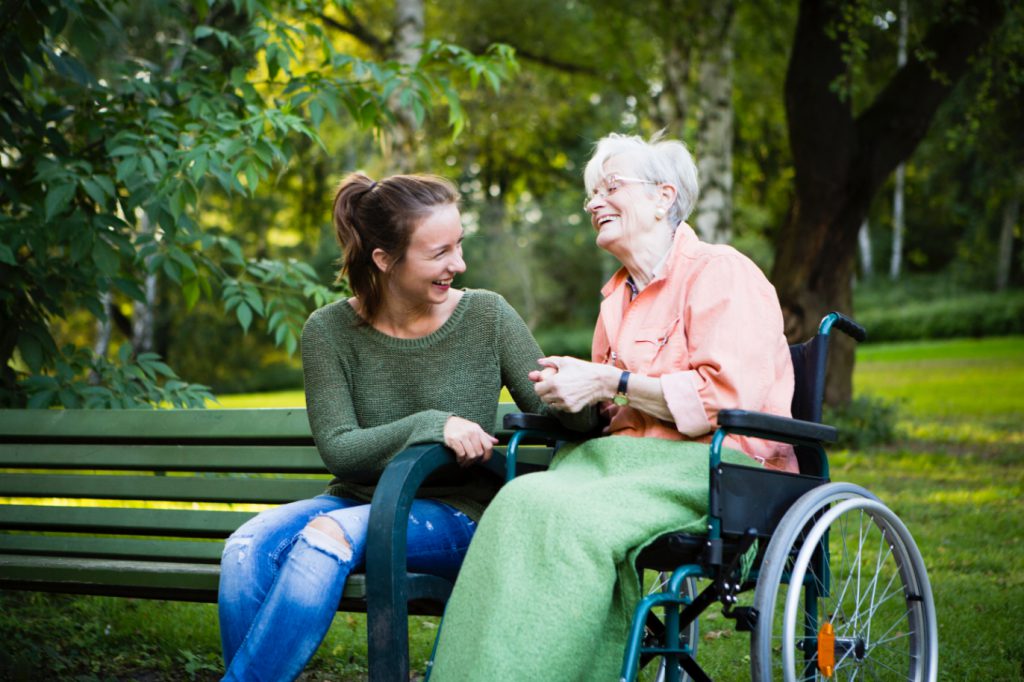Written by Amber Merten
Arthritis is a common condition among seniors that can cause pain, stiffness, and reduced mobility, affecting their daily activities and quality of life. Caring for a loved one with arthritis at home requires a thoughtful approach to alleviate discomfort, promote independence, and enhance overall well-being. Below are practical tips and strategies for providing compassionate care to seniors with arthritis at home.
Understanding Arthritis
Arthritis refers to inflammation of one or more joints, leading to pain, swelling, and stiffness. The most common types of arthritis among seniors are osteoarthritis (OA) and rheumatoid arthritis (RA). OA typically affects weight-bearing joints like the knees, hips, and spine, while RA is an autoimmune condition that can affect multiple joints throughout the body.
Tips for Caring for Seniors with Arthritis
Provide Comfortable Living Spaces
- Ensure that the senior’s living environment is well-suited for their needs, with comfortable seating, supportive mattresses, and ergonomic furniture to minimize joint strain.
- Use cushions or pillows for added support and to reduce pressure on arthritic joints while sitting or lying down.
Encourage Gentle Exercise
- Encourage regular low-impact exercises such as walking, swimming, or tai chi to improve joint flexibility, strength, and overall mobility.
- Work with a physical therapist to develop a customized exercise plan that focuses on specific joint areas affected by arthritis.
Assist with Daily Activities
- Offer assistance or hire a caregiver to help with activities of daily living (ADLs) such as bathing, dressing, grooming, and meal preparation, especially during flare-ups of arthritis
symptoms. - Use adaptive devices such as grab bars, shower seats, dressing aids, and jar openers to make daily tasks easier and safer.
Promote Healthy Eating Habits
- Encourage a balanced diet rich in anti-inflammatory foods such as fruits, vegetables, whole grains, fish, nuts, and seeds to help manage arthritis symptoms.
- Consider consulting with a nutritionist or dietitian to create a meal plan that supports joint health and overall well-being.
Medication Reminders
- Remind your loved one when to take prescribed medications for arthritis as directed by their healthcare provider, and keep track of medication schedules to avoid missed doses.
- Monitor for any side effects or changes in symptoms and communicate with healthcare professionals as needed.
Use Heat and Cold Therapy
- Apply heat packs or warm towels to arthritic joints to help alleviate stiffness and promote relaxation.
- Use cold packs or ice packs to reduce inflammation and numb pain in swollen joints, especially after physical activity or during flare-ups.
Encourage Rest and Relaxation
- Encourage adequate rest and breaks throughout the day to prevent overexertion and fatigue, which can exacerbate arthritis symptoms.
- Practice relaxation techniques such as deep breathing, meditation, or gentle stretching exercises to reduce stress and muscle tension.
Provide Emotional Support
- Be empathetic and understanding of the challenges and frustrations that come with living with arthritis, and offer emotional support, encouragement, and companionship.
- Encourage participation in social activities, hobbies, and interests to maintain a sense of purpose, engagement, and social connection.
By implementing these tips and strategies, caregivers can create a supportive and nurturing environment that promotes comfort, independence, and a higher quality of life. Remember to work closely with healthcare professionals, including physicians, physical therapists, and occupational therapists, to develop a comprehensive care plan tailored to the individual’s specific needs and preferences. Give Synergy a call for more information on how we can help your loved one continue to lead a fulfilling and active life at home!











